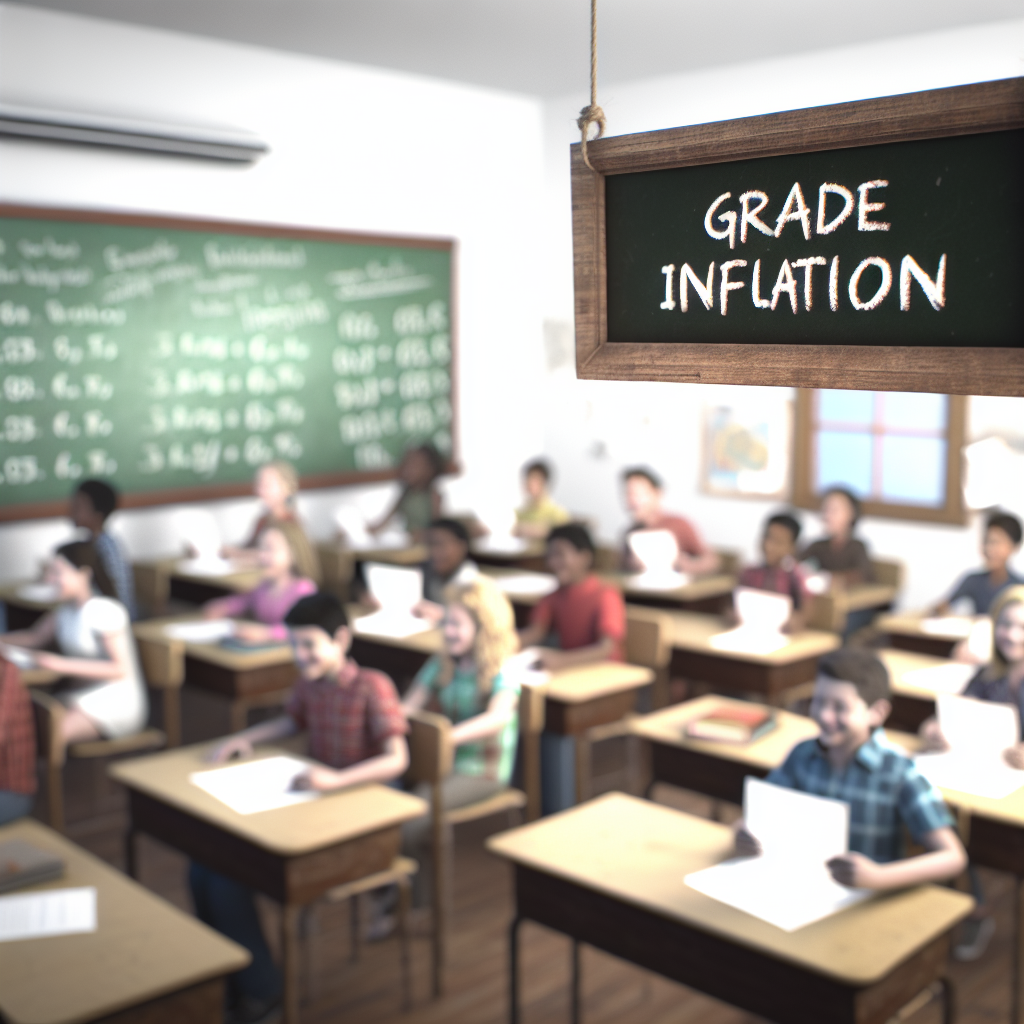Grade inflation refers to the gradual increase in average grades awarded to students, often without a corresponding rise in knowledge or skills. This article explores its effects on academic standards, educational integrity, and the need for higher education reform. By understanding these issues, we can appreciate why fair grading and accountability in student assessment are crucial for the future of education.
Understanding Grade Inflation and Its Implications
Grade inflation refers to the phenomenon where students receive progressively higher academic grades for work that would have earned lower grades in the past. This trend undermines academic standards and educational integrity, leading to a devaluation of degrees and credentials. In countries like the United States and the United Kingdom, grade inflation has raised concerns over the reliability of student assessments, creating disparities in academic accountability. In contrast, educational systems with stringent grading policies emphasize fairness and rigor, preserving the value of academic achievements and upholding the standards necessary for future success.
The Role of Academic Standards in Education
Academic standards serve as the backbone of educational integrity, ensuring that curricula and assessments maintain rigor essential for authentic learning. Upholding these standards is critical as they foster a challenging intellectual environment, promoting critical thinking and preparedness for real-world challenges. In a global context, trends of grade inflation necessitate clear benchmarks that distinguish varying levels of student achievement. By committing to stringent academic standards, higher education institutions can better navigate the complexities of grading policies and their lasting impact on student assessment and accountability.
The Intersection of Grading Policy and Educational Integrity
Grading policies play a critical role in shaping educational integrity, as they directly influence student motivation, learning outcomes, and ethical behavior. Lenient grading can create a culture where minimal effort is rewarded, undermining students’ commitment to academic excellence. Consequently, this can lead to a disconnect between grades and actual knowledge or skill mastery, fostering an environment conducive to dishonesty. The stakes are high; if grades no longer reflect true achievement, academic institutions risk diluting their credibility and the value of their degrees.
Reforming Higher Education and Promoting Fair Grading
Reforming higher education requires multifaceted strategies to combat grade inflation while emphasizing fair grading and academic accountability. Implementing standardized assessment criteria across departments ensures consistent evaluation of student performance. Faculty training on transparent grading practices fosters a culture of integrity, where expectations are clear. Moreover, establishing robust feedback mechanisms allows students to understand their academic journey and performance metrics. Engaging in regular curriculum reviews can align grading systems with educational standards, ensuring that grades reflect actual learning outcomes rather than mere leniency.
Assessing Students Fairly: Challenges and Solutions
The rise of grade inflation has led to significant challenges in ensuring fair and meaningful assessments of student performance. Many educators face pressure to achieve higher grades, often resulting in diluted academic standards. This environment can skew student motivation, emphasizing grades over genuine learning. Solutions include adopting standards-based grading, implementing formative assessments, and enhancing transparency in grading policies. Moreover, faculty training in assessment techniques can help maintain educational integrity, ensuring students are evaluated on their true capabilities and fostering a culture of accountability in higher education.
Food for Thought
Ensuring educational quality requires balancing fair grading practices with maintaining rigorous academic standards. Addressing grade inflation demands reforms and accountability to protect educational integrity. Through thoughtful assessment and policy adjustments, we can uphold the true value of academic achievements in higher education.

Leave a Reply